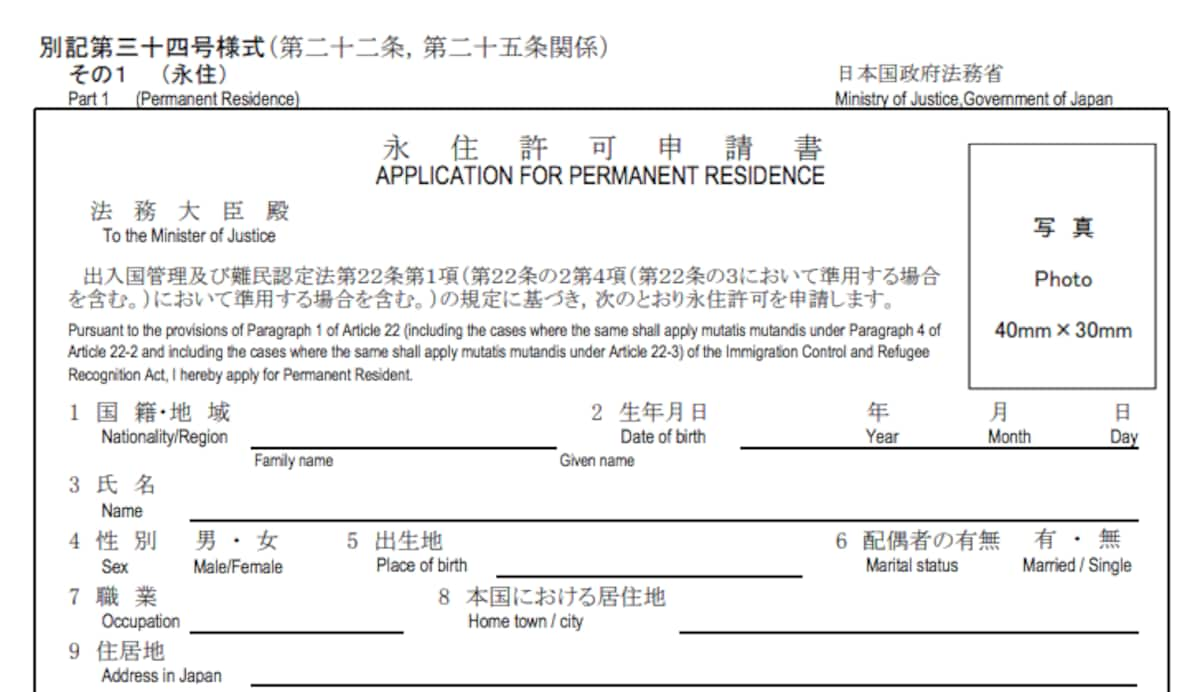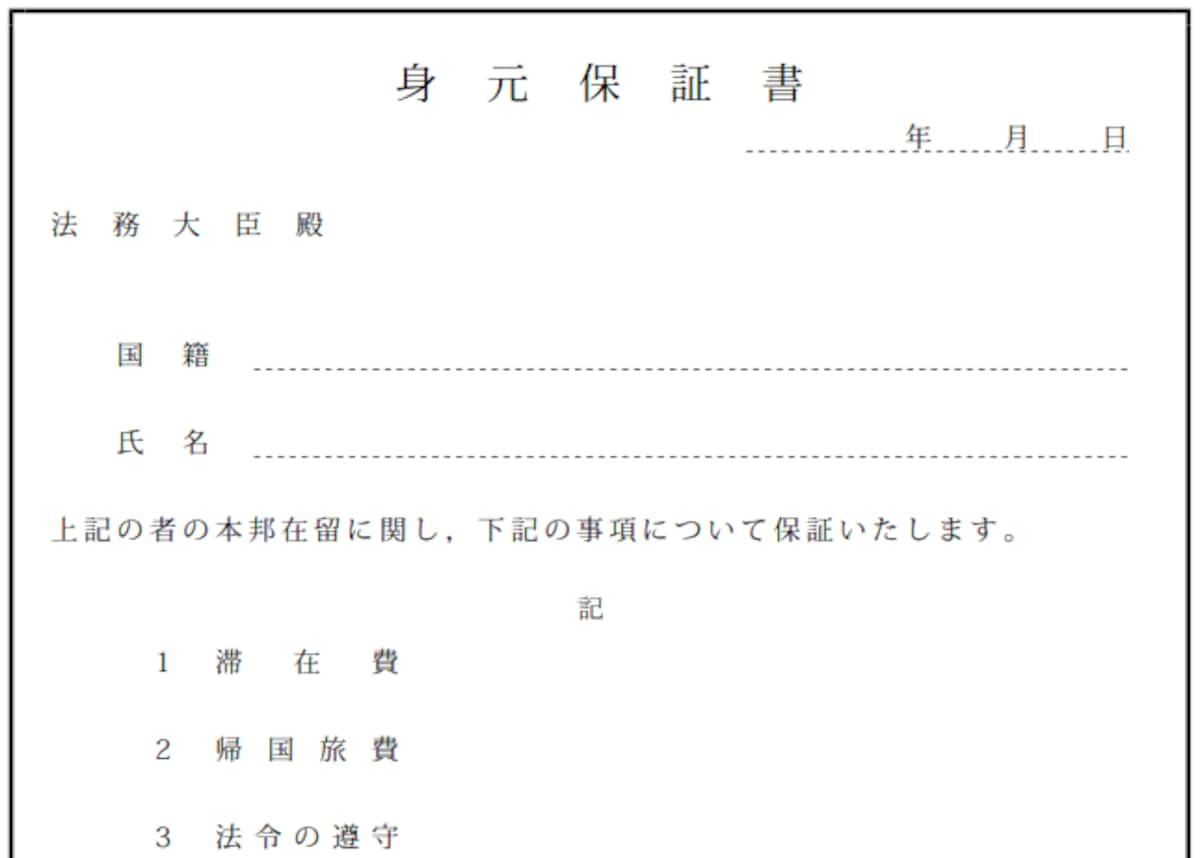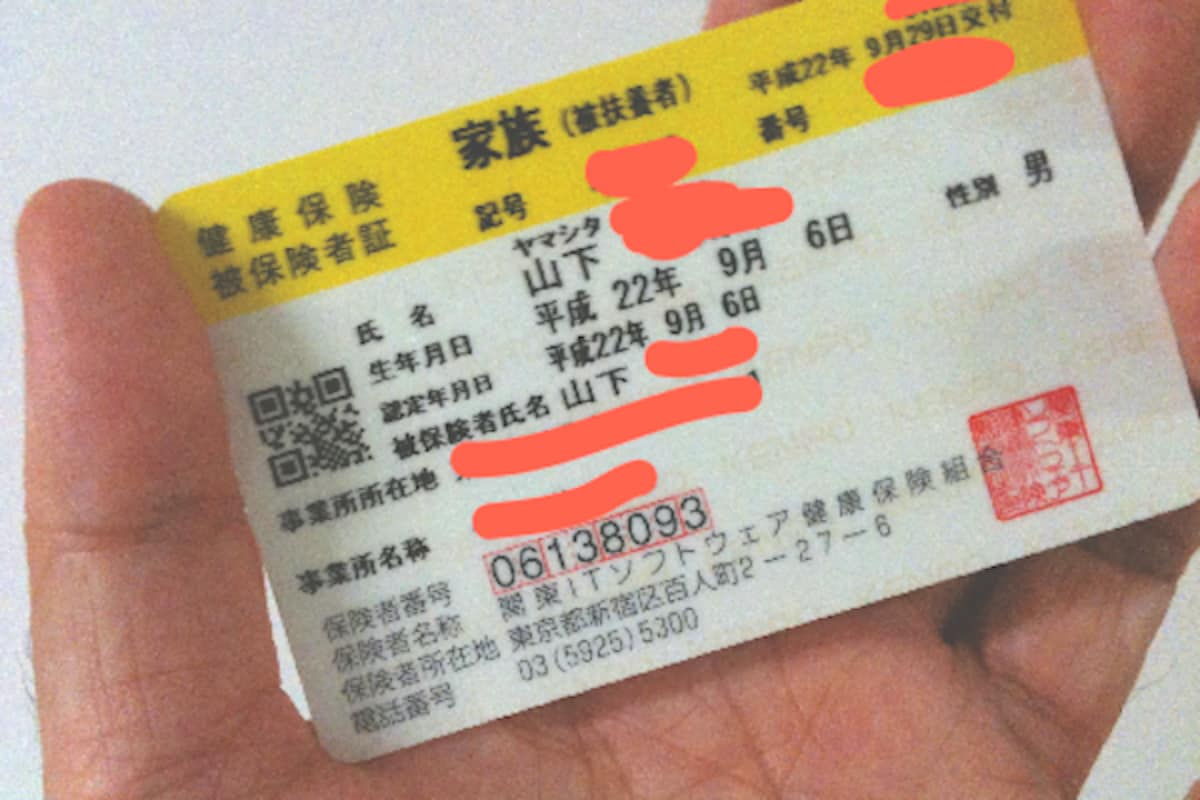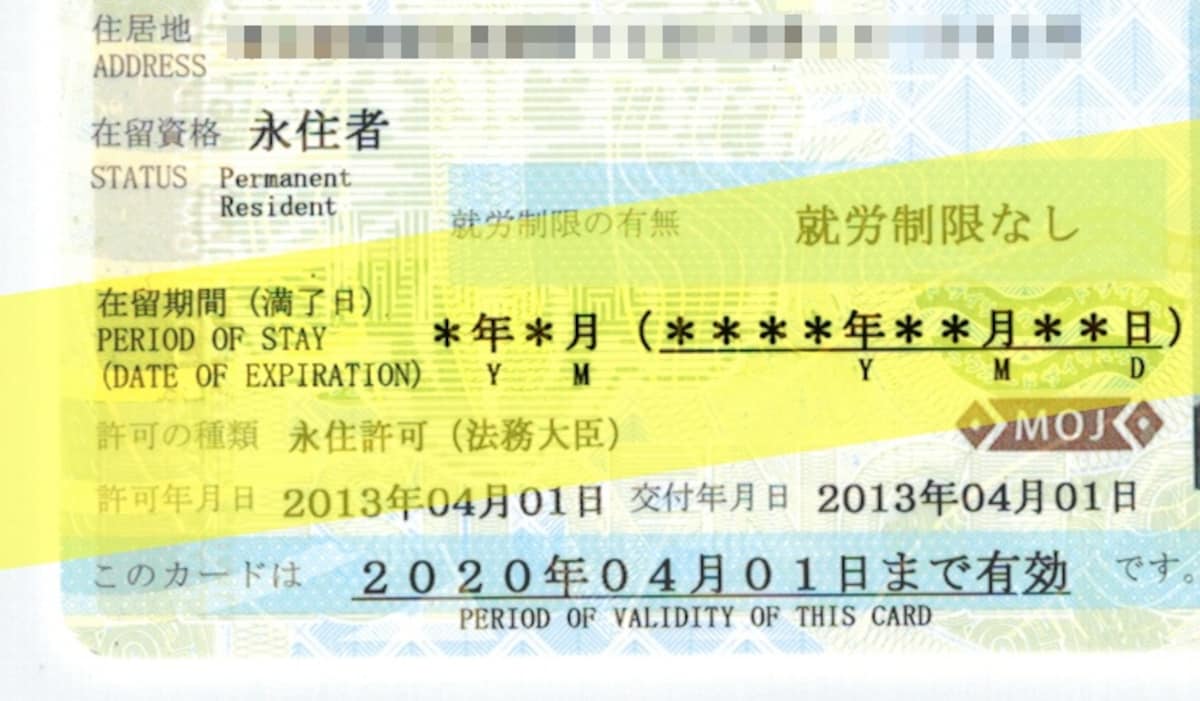2021.11.27How to Get a Permanent Resident Visa in Japan
The Permanent Resident visa, or eijuken (永住権), is the Holy Grail for many foreign workers in Japan—it means you don’t have to renew your visa every year or three years (or five if you’re really lucky). It also means you no longer have to rely on your employer for sponsorship, and you are no longer restricted in the kinds of work you can do.
Is It Hard to Get Permanent Residence?

To be eligible for permanent residence in Japan, the base requirement is that you have to have lived in the country for 10 years. Many foreign workers hold out their hopes for reaching this milestone, and there are also a number of ways the period can be shortened, which I’ll outline in more detail below.
Beyond that, you have to prove you’ve made the required contributions to Japan’s social system and have enough income to support yourself. In fact, the application process requires only a little more effort than a regular visa application, and most of the additional documentation can be acquired with a single visit to your local city office.
The only real difference from a regular visa extension is that you pay ¥8,000 (about US$72) for the application rather than the usual ¥4,000 (US$36), and you wait longer.
Requirements for Permanent Residence Visa Application in Japan

To apply for a permanent residence visa (永住権・eijuken) in Japan, you must:
• Have resided in Japan for 10 consecutive years
• Be a person of good conduct (i.e., no criminal record)
• Still satisfy the requirements of your current visa (i.e., still employed, married, etc.)
• Be able to support yourself financially
• Have contributed to taxes and social security
While there is no official number for the annual salary considered to be “self-supporting,” a common eyeball amount is ¥3,000,000 (about US$27,150) per year, plus ¥600,000 to ¥800,000 ($5,500 to $7,200) for each dependant. However, when your savings are taken into account, the actual salary amount can be less, so there’s no hard and fast calculation. So don’t give up if you worry your salary is too low!
Ways to Shorten the Residence Period

There are a few ways to shorten the residence period required before you can apply for your permanent visa:
1) You’re married
Spouses of Japanese nationals (and permanent residents!) can apply for permanent residence status after having been married only three years as long as they have lived over one year in Japan. Their children are also eligible after just one year in Japan.
2) You score enough points
In 2012, Japan introduced a points-based system for expediting permanent residence for highly skilled applicants in the fields of management, research and technology. If you score 70 points, you can apply for permanent residence after just three years. If you score 80 points, you can apply after just one year. You can see the points calculator here.
3) You’ve made a major contribution to Japan
If you are recognized to have made a major contribution to diplomacy, economics, industry, arts, education, research, sports or public welfare, you can apply for permanent residence after living in Japan for just five years. This one is pretty rare, and essentially applies to winners of the Nobel Prize and other high-profile international or domestic awards, and people of comparable public standing.
Required Documentation

To apply for permanent residence in Japan, you will need the following documents:
1) Permanent residence application form (永住許可申請書・eijuken shinsei-sho)
2) One 4 cm x 3 cm photo
• Taken in the last three months
• Clear and head-on, with no head covering
• Plain background with nobody else in the photo
• Your full name written on the back
3) Certificate of residence (住民票・juminhyo)
• This can be acquired from your local city office.
4) Proof of employment
• If you work for a company, you’ll need a certificate of employment (在職証明書・zaishoku shomeisho).
• If you’re self-employed, you’ll need your final income tax return statement (確定申告書の控え・kakutei shinkokusho no hikae), and, if you have one, your business permit (営業許可書・eigyo kyoka-sho).
• If you’re dependent on your spouse, your spouse will have to submit this information.
5) Proof of income (所得・shotoku) and payment of residence taxes (住民税・juminzei)
• The nozei shomeisho (納税証明書) shows proof of payment of your residence taxes. As it also typically lists your total income, it is usually the only document you need.
• If your full income and deductions are not listed on your nozei shomeisho, you will also need your kazei shomei-sho (課税証明書), which shows your total taxation amount. Both documents can be acquired at your local city office. While the Ministry of Justice officially requires only the most recent year’s documentation, it is common to submit three years of documents.
• If you don’t work for a company, you will also need to provide a copy of the entries in your bankbook (預貯金通帳・yochokin tsucho) for the previous year. It’s best to provide this even if you work for a company, as your savings amount will help demonstrate that you are capable of supporting yourself.
6) A copy of the ID page in your passport
7) Copies of the front and back of your residence card (在留カード・zairyu card)
You will also need a guarantor to prepare a number of documents on your behalf, which you can see below. You can find the full official documentation list in English here; however, the Japanese description is much more detailed.
Be aware that any non-Japanese documents must include a Japanese translation. Submitted documents are generally not returned, so it’s best to provide copies or to specify the need to return any particular documents at the time of submission.
Additional Documents for Spouse-based Permanent Residence

Spousal applications for permanent residence require the above documents, plus a few more depending on your situation:
• If you’re applying as the spouse of a Japanese national, you will also have to submit a copy of your spouse’s family registry (戸籍謄本・koseki tohon) listing you as a member.
• If your spouse is a permanent resident (i.e., not a citizen), you’ll need to provide your marriage license and a letter from your spouse explaining your relationship.
• If you are applying as a spouse and are unemployed yourself (i.e., a dependant of your spouse), your spouse will have to submit the required work-related documents listed above, and you will have to provide a letter explaining your financial support situation.
• You will have to provide certificates of residence for all members of your household (i.e. for your spouse and any children).
Guarantor Requirements

You will need a guarantor (身元保証人・mimoto hosho-nin) for your application. The guarantor must be a Japanese national or permanent resident, and has no obligation beyond providing the documentation below:
1) Letter of guarantee (身元保証書・mimoto hosho-sho)
2) Their certificate of employment (在職証明書・zaishoku shomeisho), or equivalent documentation if self-employed (see above)
3) Their income certificate (所得証明書・shotoku shomei-sho) for the preceding year
4) Their certificate of residence (住民票・juminhyo)
This should be submitted along with your own documentation. For reference, when I submitted my application, I asked a friend who was also my former manager to be my guarantor.
Recommended Documents

While not expressly on the MOJ list, the following documents are also highly recommended:
• A copy of your National Health card (健康保険証・kenko hoken-sho) for each member of your household
• A personal letter in Japanese explaining your own contributions to Japan
• A letter of recommendation from your employer outlining your contributions to the company and to Japan
• Any documents certifying your contributions to Japan (certificates of commendation, etc.)
The National Health card proves that you are fully contributing to the social system. If you have not been using National Health, it’s best to sign up right after you move to a new region—they usually only calculate your back payments to the time you moved.
How Long Do You Have to Wait?

The official waiting period for a permanent residence visa is six months. However, in practice it can be anywhere from four to eight months. This means that if your regular visa is going to expire within eight or nine months of your permanent residence application, you should also expect to have to renew your regular visa. When I applied for my own permanent residence, it was the same year they introduced the new residence cards and it took over a year!
After You Get Permanent Residence

When the waiting is over, you get a truly magical thing: a residence card with stars in place of an expiration date. You’ll be able to do any kind of work, and you’ll have a much easier time getting loans to purchase property. (When I tried to buy property before I had permanent residence, the only bank that would touch me said I needed to put down half the value of a property as down payment if I wasn’t a permanent resident!)
One downside is that you will have to keep an eye on your tax obligations for worldwide income. You can find some details on that here.
Also be aware that if you plan to leave Japan for an extended period of time, you need to set foot back in the country at least once every 12 months to retain your permanent residence status. You can extend that period to five years if you apply for a special re-entry permit. A single re-entry costs ¥3,000, while multiple is ¥6,000.
Also remember that your residence card itself is still only valid for seven years. After seven years, you have to bring in your residence card, your passport and a new photo along with an Application for Extension of the Valid Period of the Residence Card. Details can be found here.
Other than that, you are free to enjoy Japan without ever having to worry about your visa status again!
©https://allabout-japan.com/en/article/7143/
